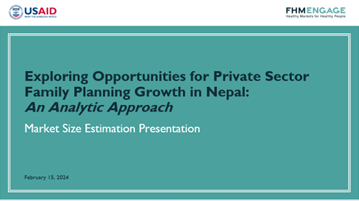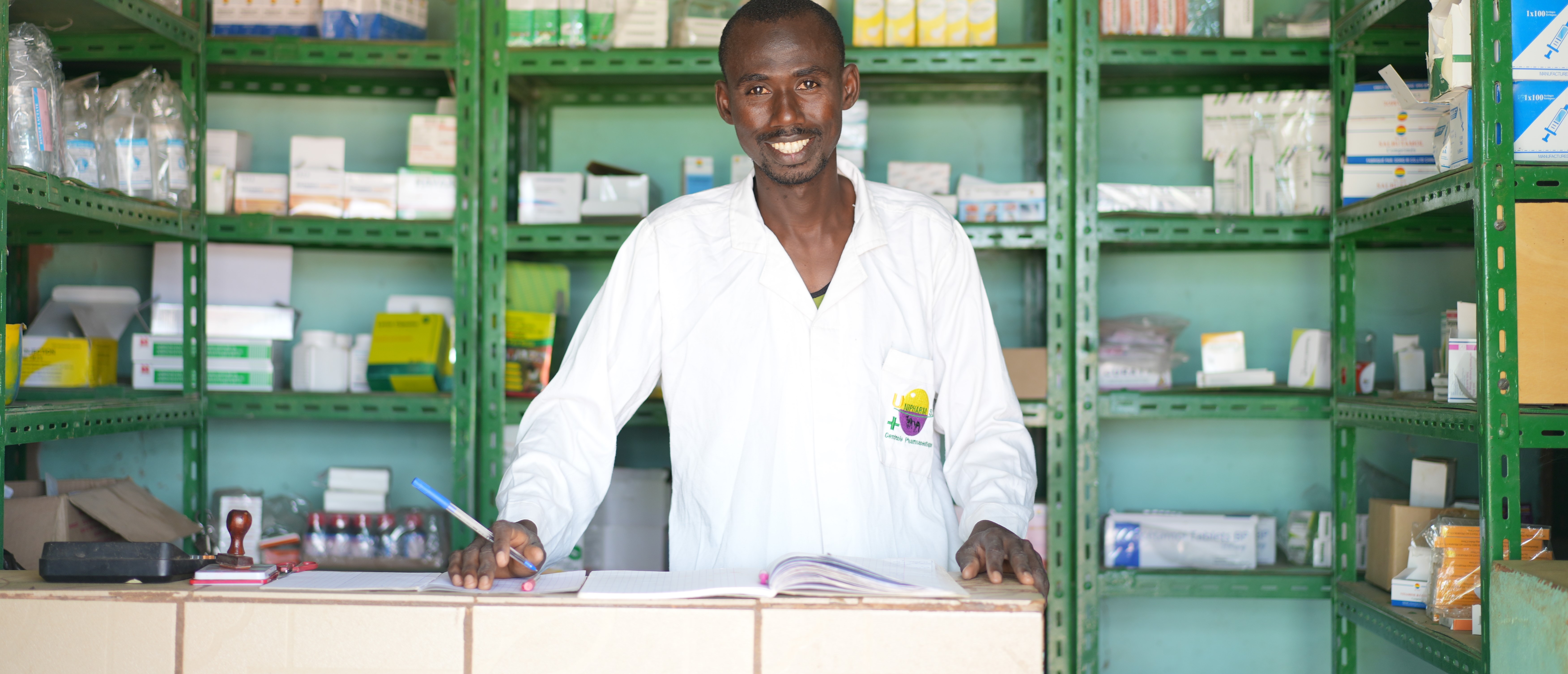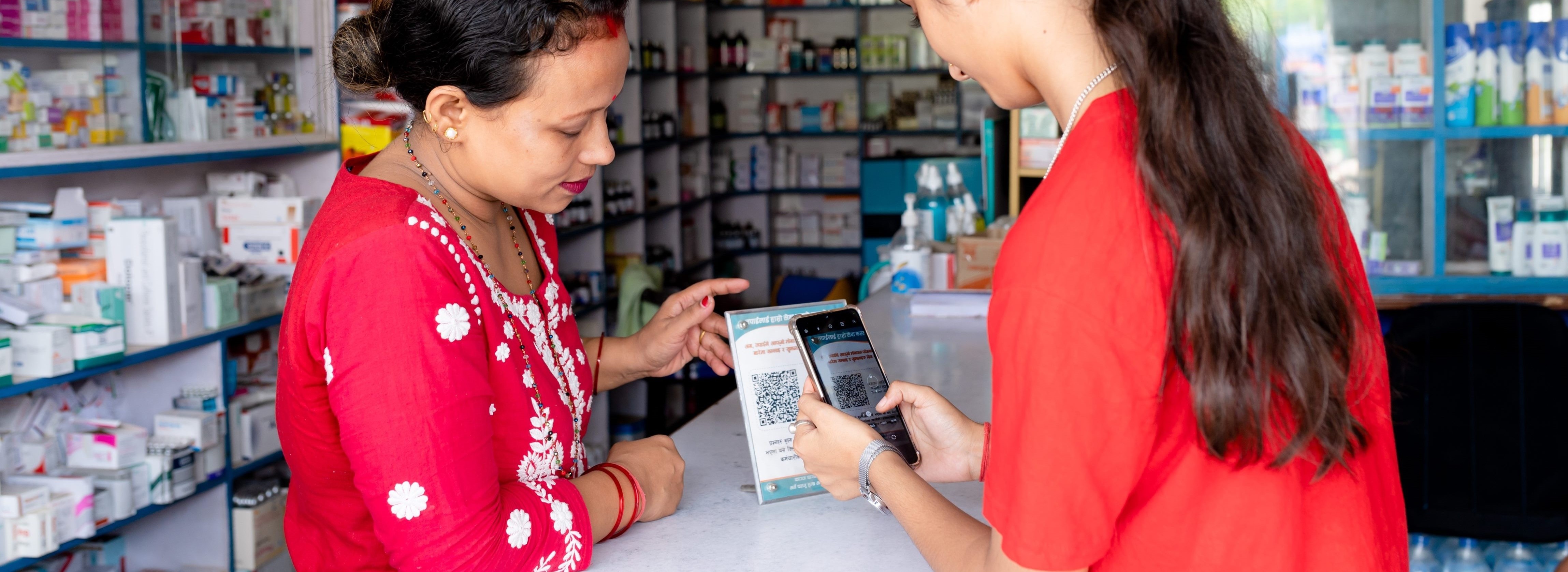

About FHM Engage
USAID’s Frontier Health Markets (FHM) Engage believes that strengthening health markets will lead to improved health outcomes. We use a market development approach to identify root causes of underperforming markets. We co-design sustainable solutions with local market actors to deliver the lasting behavior change needed to evolve health markets.
FHM Engage is implemented by four core consortium partners: Chemonics International (prime and co-technical lead), Results for Development (R4D) (co-technical lead), Pathfinder International, and Zenysis Technologies. FHM Engage supports USAID Administrator Samantha Powers’ commitment to working with new and local partners by working with and through 16 local, regional, and specialized network implementing partners (NIPs). (Read more about our partners here.)
Programming under FHM Engage is organized around two result areas:
-> Improved market environment for greater private sector participation in the delivery of health products and services
-> Improved equal access to and uptake of high-quality consumer driven health products, services, and information
While FHM Engage activities take place in many locations and are implemented by numerous individuals and organizations, we developed and use the following principles and operationalization behaviors as key underlying guidelines: we celebrate inclusivity and equity, listen before acting, are persistent yet patient, embrace transparent learning, build on existing structures, and nurture, trust, and respect. (Read more about these guiding principles, so critical to health market facilitation in this blog.)
Overall, FHM Engage envisions a world in which health markets are responsive, equitable, resilient, and driven by consumer needs. (Learn more about our project here: English; French.)
Key Approaches
FHM Engage implements the following key approaches to provide direct support to local public and private market actors to lead to effective and sustainable change within health markets:
Market development approach
The market development approach (MDA) allows us to understand the market system, identify root causes of market under performance (focusing on stewardship; financing; rules, regulations, and norms; and market information), and develop context-specific and locally informed strategies and solutions to systematically change market environments and health markets. The MDA is co-implemented with NIPs and other local health market actors from both public and private sectors to support the co-design of contextually relevant and sustainable market solutions.
Adaptive learning
Adaptive learning is a flexible approach to program implementation and research in which data collection, reflection, and iteration happen throughout a program’s lifecycle, with the goal of improving the program’s effectiveness. FHM Engage is working to create a culture of adaptive learning across teams and activities to support continuous reflection on how FHM Engage support is being implemented and to use data to inform adaptive management of program activities to improve the project’s impact on health markets.
Working through regional and local actors
FHM Engage believes in localizing health market support to both properly contextualize market challenges and identify workable solutions within the system, but also as a means for building the sustainability of those solutions through local and regional capacity. This will be carried out via co-implementation through FHM Engage NIPs and other local public and private sector actors focusing on responsibly transitioning implementation of project activities towards those actors themselves over the evolution of the project. Through this partnering approach, FHM Engage hopes that outcomes achieved can be carried forward post-FHM Engage support due to the local and regional actors being long-term components of the health market systems.




